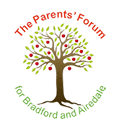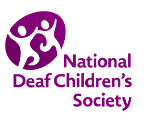SEND
SEND at Farnham
At Farnham Primary, we are a fully inclusive and wheelchair accessible school. We support all pupils to achieve their full potential, academically, personally, socially and emotionally across all areas of the curriculum and in preparation for the future.
Children may have a special educational need which requires additional support for their learning. They may have a specific physical or learning need which requires adapted support or additional provision to be made. We use the Bradford guidance for the Graduated Approach, implementing the Assess-Plan-Do-Review cycle. There are varying stages of SEND, the document below shows the definitions used in terms of SEND. Please click on the link below.
Definitions of terms used for SEND
Every year the Special Needs Coordinator writes an annual report to the Trustees.
Farnham SEND Information Report
If you are concerned about the progress your child is making or if you think you child has additional needs, please speak to your child’s class teacher in the first instance. You can also make an appointment to speak to the SENDCO, Mrs Perry to discuss your child if you have any further concerns. Please contact the office on 01274 573297 to make an appointment.
Additional Information
Farnham SEND Local Offer Statement
Useful Support Groups and Agencies
Link to free digital books to support reading at home
https://www.uniteforliteracy.com/
NHS Children’s Speech & Language Therapy
Please access free speech and language resources and videos to support your child’s development by clicking this link.
https://www.bdct.nhs.uk/services/childrens-speech-and-language-therapy/
School Nursing Service – Information for Parents and Carers
The School Nursing Service for Bradford is available to support children and young people aged 5 years to their 19th birthday and their parents or carers. The team forms part of 0-19 Family Health Services and work alongside the Health Visiting Team who support parents of children aged 0-4y.
Part of the School Nurse Service role is to connect professionals, children, young people, and families more directly with the most appropriate source of help or advice. They can help to navigate care and identify local and national services available both in person and/ or digitally.
The team can support you with things such as:
1. General health issues may include physical activity and nutrition, obesity, sexuality, identity, tobacco or vapes and substance abuse
2. Initial advice and assessment for mild or low level emotional and mental health issues
including basic strategies and interventions for issues such as:
- Self esteem
- Anxiety which may present as:
- Avoidance
- Defiance
- Seeking constant reassurance
- Excessive worries
- Physical symptoms (such as sweating, heart palpitations or feeling shaky)
- Panic attacks or feeling dizzy or sick
- Change in social interaction
- Low mood which may present as:
– Sadness or low mood
– Loss of interest or pleasure
– Fatigue or low energy
– Disturbed sleep (increased or decreased)
– Lack of concentration
– Low self confidence
– Changes in appetite
– Suicidal ideation (thoughts of but no active plans to attempt this)
– Self-injury
– Guilt or self-blame - Self-harm, which may present as:
– Cutting
– Over or under eating
– Excessive exercise
– Self-biting, punching or head banging
– Picking or scratching skin excessively
– Burning skin deliberately - Hair pulling
- Difficulties in managing emotions or anger, which may present as:
– Problems verbally expressing emotions in a calm and healthy way
– Outward aggression which may include physical behaviour towards self, others or objects
– Inward aggression may include isolation or self-harm.
3. Basic sexual health advice
4. Sleep issues (not related to a medical condition or lack of parental boundaries or routine)
5. Development or co-ordination concerns that affect a child’s ability to perform everyday tasks such as:
- Frequently described as clumsy or awkward
- Difficulty mastering simple motor activities, such as tying shoes or co-ordinating movements smoothly
- Inability to perform age appropriate academic or self-care tasks
- Delayed motor skills
6. Primary Nocturnal Enuresis (known as bedwetting or never been dry at night)
This list is not exhaustive and if you are unsure, please contact a member of the School Nurse Team to discuss your concerns further. Furthermore, sometimes a different service to School Nursing may be needed, however we can discuss this when you contact us.
Contact the team via Single Point of Access Hub on 01274 221203 Monday to Friday between 8.30-5pm and ask for School Nursing.
If your child or young person is offered one-to-one support, this will consist of an initial assessment, basic strategies and interventions, up to a maximum of three sessions. The child or young person will then be discharged if a positive outcome has been achieved; discharged with on-going self-management advise or referred onto a more appropriate service to meet their needs.
We have many ways in which we offer appointments with children and young people. This may be virtually, via video or telephone contact or a face-to-face appointment at an appropriate venue including schools on a needs led basis.
Support can be with the child or young person on a one-to-one basis, with their parent or carer depending on the child’s age, or together with their families or teachers based on the needs of the child or young person
Please note: We are not an emergency service. If you have immediate or urgent concerns about your child’s physical wellbeing, please call your GP; NHS 111 or your local A+E department. For immediate or urgent concerns regarding your child’s mental health which makes them or you feel unsafe, distressed or worried, there is a First Response crisis service available. This offers support 24 hours a day, seven days a week to people of all ages living in Bradford, Airedale, Wharfedale or Craven experiencing a mental health crisis. Their telephone number is 0800 952 1181.
![]()
https://www.barnardos.org.uk/what-we-do/services/bradford-sendiass
Bradford SENDIASS is for parents and carers of children and young people 0-25 with special educational needs and disabilities (SEND) in the Bradford area – and for their children too. The staff help parents and children to work together with schools and the local authority so that they have a good understanding of what support is needed and to make sure that it is put in place. They can also offer IASS around health and social care needs in relation to SEND.

The PFBA committee and three paid staff are all parent carers of a child or young person with additional needs. Their committee and volunteers are all parent/carers with children/young people who have a range of special needs and/or disabilities. They all bring our experiences and passion for supporting and empowering other parent/carers on their journey’s through the complex world of services.

AWARE is a parent-run group supporting families with children and young adults on the autistic spectrum (formal diagnosis not required). The group covers the Airedale, Wharfedale, Bradford and Craven areas and beyond. Members include families and supporters in general, as well as health, education and social care professionals. Early diagnosis of autism can greatly improve the chances of a person receiving appropriate help. AWARE can support families through the maze of local services which cross health, social care and education boundaries. They can advise you about about accessing appropriate support from statutory, voluntary and private services, which can make a huge difference to a person with autism, helping them to maximise their skills and achieve their full potential as an adult. They also run a whole range of events and activities for children, young people and parents or carers.
THIS MAY HELP
This May Help has been created to support parents and carers with concerns about their child’s mental health. The subjects covered on their website have been chosen by families and young people who have gone through their own mental health challenges. The films offer advice across six main subject areas, with ten additional films offering supporting information. The films can be viewed in any order at any time. Each film has a dedicated page where you’ll also find helpful advice and links to other resources.
West Yorkshire ADHD Support Group
West Yorkshire ADHD Support Group are here to support anyone affected by ADHD; this includes both adults and children with or suspected of having ADHD, and also their parents or carers and siblings.

https://www.bradfordinclusivedisabilityservice.co.uk/
BIDS is a registered charity established in January 1975 and has been based in St Luke’s Hospital since then. Parents can receive help with: benefits access, daily living help and access to other services (OT, physio, SLT and consultant support). New families wishing to access their services can call and make an appointment. Appointments can be made for either a Monday or Wednesday and will last for 15-20 minutes. Telephone (01274) 365463.
Bradford Deaf Children’s Society is a local group run by parents and carers of deaf children, working together with local health and education professionals.
Carers’ Hubs
https://www.bdct.nhs.uk/service-users-carers/support-for-carers/
There are a range of different activities and drop-in sessions held at Horton Park Health Centre for parents who are also carers. Contact carerhub@bdct.nhs.uk






